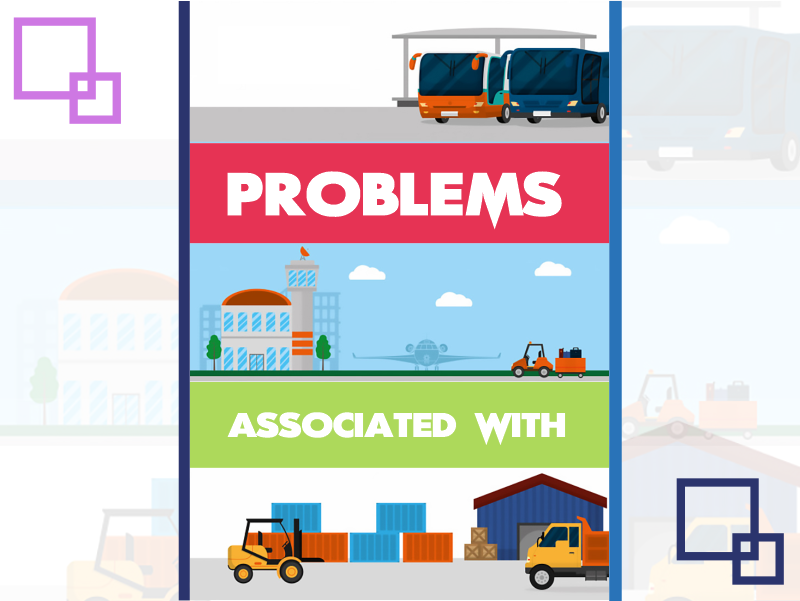Table of Contents
If 20 years ago, you had told the trucking expert of the innovations taking place now in the logistics and commercial transportation industry over two decades, they would have been ecstatic. If you had mentioned regarding the level of increase in demand for intraday shopping and volume of online transactions, they would have been speechless. The logistics and transportation industry has traveled the journey of technological and procedural developments to service with an all-time outrageous demand along with adjusting to an era of ever-changing preferences of consumers and expectations related to delivery time and cost. To make this journey a little farther with more advancement, Blockchain technology has already entered the industry to target some key areas. From resolving disputes to an increase in efficiency of administration along with tracking orders, Blockchain is aiming to revolutionize the industry in terms of efficiency, cost, and services to customers. In this article, let us explore the ways of Blockchain in the transportation and logistics industry.
Problems Of Transportation and Logistics Industry

With an increase in expectations, the logistics industry is in a bit of a mess. The demand for products has been increasing day by day with supply chains diversified in the continents apart and lack of intrusion of modern technologies to track, verify, support customers and many other issues. Major issues of the industry are:
- The heavy expense is tied up with the dispute resolution for the payments involved in the transportation industry because of a lack of verification of shipments and the delay in transfer of payments.
- A rise in processing and administration costs with an increase in transportation costs because of over reliability of transactions being recorded in the hardcover book.
- Mismatch of the records or lack of records of shippers and carriers causes a delay in delivery as transporters to find difficulty in matching with the demand and supply of products.
- Consumers are still lacking the network of transparency where they cannot track the journey of the products.
- Because of the manual process of verification, products like medicines and other sensitive products do not reach relevant temperature, less expiry time and sometimes contaminated too.
- Cross border orders and payments most of the time face the problems related to late payments with lack of an efficient tracking system.
- Issues related to the unwanted but mandatory intervention of middlemen, lack of information of the credibility of the supplier, transparency of the network are also prevalent in the logistics industry.
Solutions | Blockchain In Transportation and Logistics Industry
Blockchain in the transportation and logistics industry can prove as the boon in the following ways:
- Freight Tracking: Demand for the prime or intraday delivery has been increasing with the pacing up expectations of consumers. It results in the adoption of technologically advanced solutions by the transportation industry. With the help of Blockchain technology, scaling of traceability, proper authentication with negligible chances of misinterpretation of data can be assured. Increased speed in the reliable tracing of information can impact the quality of products like the temperature-controlled products can be delivered on time.
- Increased Efficiency: As Blockchain technology can easily integrate with other modern technologies, so, with the innovations of IoT and Artificial Intelligence, it can affect the monitoring system. Transportation companies can detect by deploying the IoT sensors in shipping vehicles, the amount of the space occupied and determine cost accordingly by transmitting the data on the Blockchain network. Also, integration of cloud platforms with Blockchain can assure the documentation throughout the process efficiently. Thus, Blockchain can assure the integrity of the products being transported maintaining the immutable records which are transparent yet secured.
- Traceability of performance history of vehicles: Performance of the vehicles is as important as tracking the movement of shipments, especially when there is a need for second-hand delivery vehicles because of a limited budget. Blockchain networks can authenticate the information based on past performance as it records the decentralised ledger of the information. While the logistics industry has the companies which act as middlemen to authenticate the records, most times their act is biased. If we mention the records on the network, we can utilise then secured ledger as the standardised document to determine price, history and other factors related to purchasing.
- Enhanced verification system: The number of transportation companies is duped by the muddled or duplicated data which results in a misrepresentation of demand and supply. With the help of Blockchain along with a transparent network, time-stamped data verified by the decentralised network can be loaded, while eliminating the need of middlemen while making the different dashboards available to various stakeholders of the industry.
- Seamless payment system: Blockchain-based smart contracts is one of the most helpful applications in the logistics and transportation industry. Smart contracts which contain the self-executing codes on the fulfilment of conditions can aid in the quick transaction of payment, even cross borders with minimal transaction fees. The hassle-free process of transferring the forms from supplier to shipment company to distributor and so on increase the exposure to fraud which can be reduced by deploying the smart contracts in the system.
- Minimising Monopoly: Blockchain technology has the potential to reduce the monopoly, which is currently enjoyed by the various intermediaries over the confidential information. With the help of Blockchain network, any party on the global supply chain has the accessibility of real-time information tracing the mistakes occurred in the documentation or establishing the identities. This can lead to unlocking the opportunities for small and medium business houses in the supply chain.
Summing Up
Blockchain in transportation and logistics can be the future of the industry from quickly transforming the way of storing the data to its management. With a decentralised and distributed ledger of records, Blockchain can cause linking the data and can revolutionize sectors like cross border trade logistics, global supply chain, international shipments and many more. From automating the documentation process to protecting the transactions throughout the logistic chain, Blockchain can practically strengthen the industry while maintaining the new standards all across the globe. In the coming year, we expect Blockchain to turn the tables toward progress in the logistic industry. Thus, Blockchain in transportation and logistics aim to build the trust and credibility of all the stakeholders associated with the industry.

